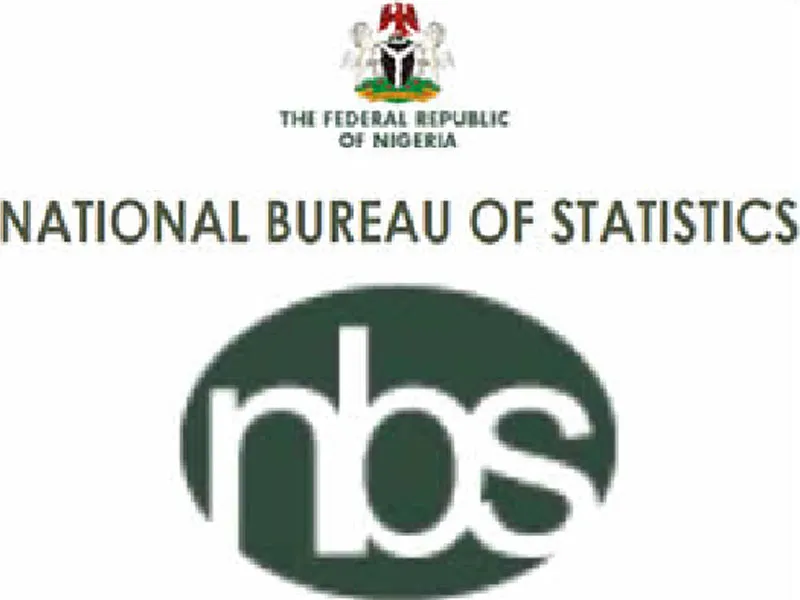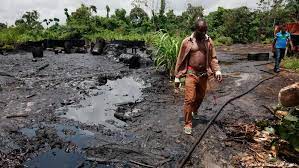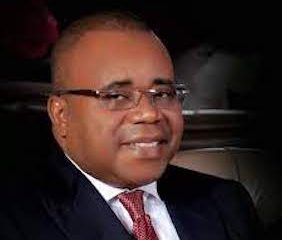Oil & Gas
No Peace in Niger Delta Until Host Communities Benefit from Oil, Gas Management – Monarch

From Tayese Mike, Yenagoa
The Chairman of the Bayelsa State Council of Traditional Rulers Council and ruler of Ekpetiama Kingdom, King Bubaraye Dakolo, Agada IV, on Sunday advocated greater participation of host communities in oil and gas value chain as a panacea to peace.
He said that until host communities benefits and have a say in the management of oil and gas resources in their domain, the Niger Delta region will not know peace.
Dakolo said it was morally wrong for the federal government to give out oil blocs to people who do not suffer the adverse effects of exploration and exploitation without the consent of the indigenes who bear the brunt of crude oil production.
The monarch, who stated this while speaking at the lighting of the torch of Oil and Gas Stakeholders Festival OGSFEST 2022, at the Conference Hall of the Traditional Rulers Council secretariat in Yenagoa.
He noted with regrets that the community where oil was first discovered in commercial quantity, and the entire Niger Delta have nothing to show for, six decades after the exploration and production of crude oil.
“And this strong message is to the Nigerian State, you cannot steal of what is ours and expect to sleep, it is not because we don’t want you to sleep, it is because of your attitude, so if you want to sleep, if the Nigerian state wants to make it easy for law enforcement agents, then they should give to us what is ours.
“Let us manage what is ours, let us be a major voice in determining how to use what is ours and then everyone will go to sleep.
“You cannot take our kingdoms and give to other people in the name of oil blocs without our consent, knowledge, without our involvement and you want to sleep well, you can’t sleep well, and it’s natural.
“We deserved to see sixty years of oil in Ogbia Kingdom, in Bayelsa State and in the Niger Delta, we are tired of having our oil monies as refineries in Equatorial Guinea, as streets and hotels in Europe or stacked away in the Swiss Banks, and not available for our use,” Dakolo said.
In her address, the Convener of OGSFEST 2020, Ms Onome Wilkinson, said the Oil and Gas Stakeholders Festival Torch Ceremony is designed as the flag off of the “OGSFEST UYO 2022” to be held at in Akwa Ibom State capital in August.
She said OGSFEST, through a funfair approach, is aimed at promoting peace, unity and a symbiotic relationship amongst host communities and the Nigerian Government towards achieving unbridled economic development of oil producing areas and the entire country.
“We will encapsulate under festive mood, a realistic view of the narrative of host Communities, the sincere efforts of the Government and the tangible socio-corporate interventions of both NOC’S and IOC’S towards the development of the oil rich Niger Delta Region over the years.
“The Festival amongst others will showcase essay competitions, epic dramas, colorfully packaged in a series of command performances by selected state cultural troupes, side by side with round table discussions on quite a number of plenary bordering on environment, oil spillage, PIA and more,” Wilkinson said.
Oil & Gas
Petrol Price Stands at N1,052.31 per Litre in October – NBS

he National Bureau of Statistics (NBS) said the average retail price of a litre of petrol witnessed a drop from N1,184.83 in October 2024 to N1,052.31 in October 2025.
The NBS made this known in its Petrol Price Watch for October 2025 released in Abuja yesterday.
It stated that the October 2025 price of N1,052.
31 represented a 11. 18 per cent decrease over the price of N1,184. 83 recorded in October 2024.“Comparing the average price value with the previous month of September, the average retail price increased by 8.42 per cent from N970.59.”
On state profiles analysis, the report said Kogi paid the highest average retail price of N1,110.
00, followed by Sokoto and Borno at N1,105.93 and N1,101.63, respectively.“Conversely, Oyo, Nasarawa and Abia paid the lowest average retail price at N1,001.79, N1,009.38, and N1,012.50, respectively,’’ it stated.
Analysis by zones showed that the North-East recorded the highest average retail price in October 2025 at N1,072.74 while the South-West Zone recorded the lowest price at N1,032.81 per litre.
The NBS also stated in its Diesel Price Watch Report for October 2025 that the average retail price was N1,398.57 per litre.
It said that the October 2025 price of N1,398.57 per litre amounted to a 2.96 per cent decrease on a year-on-year basis over the N1,441.28 per litre paid in October 2024.
“On a month-on-month basis, the price increased by 9.45 per cent from the N1,277.81 per litre recorded in September 2025,’’ it added.
On state profile analysis, the report said the highest average price per litre of diesel in October was recorded in Enugu at N1,468.29, followed by Niger at N1,465.69 and Jigawa at N1,437.40.
On the other hand, the lowest price was recorded in Katsina at N1,301.24 per litre, followed by Edo at N1,307.84 and Kebbi at N1,308.94.In addition, the analysis by zones showed that the South-East Zone had the highest price of N1,415.85 per litre, while the South-South recorded the lowest price at N1,387.18 per litre.(NAN)
Oil & Gas
Dangote Refinery Says Its Intervention Prompted Petrol Price Reduction

Dangote Petroleum Refinery has said that its gantry price reduction actually prompted petrol price downward adjustments by marketers.
The management rejected what it described as series of misleading publications claiming that the recent reduction in pump prices by oil marketers is a consequence of the Federal Government’s reversal of the 15 per cent import tariff.
‘This narrative is entirely false, deliberately misleading, and inconsistent with actual market dynamics.
For the avoidance of doubt, the factor that prompted the price adjustment was our own reduction of PMS gantry and coastal prices on November 6.’ it said in a statement.According to the statement, the subsequent change in pump prices is now being wrongly attributed to a tariff decision in an attempt to distort the facts and misinform the public.
It will be recalled that Dangote Petroleum Refinery, on November 6, reduced its PMS gantry price from N877 to N828 per litre, representing a 5.6 per cent decrease, and its coastal price from N854 to N806 per litre.
These changes were publicly announced across major media platforms, including, but not limited to, The Punch, Vanguard, The Cable, Daily Trust, The Sun, The Street Journal, Petroleumprice.ng, New Telegraph, Business Hallmark, and several others, and were implemented well before marketers adjusted their pump prices.
The claim that the reduction in pump prices was driven by the suspension of the 15 per cent import tariff is therefore incorrect, it said.
‘The import tariff had received the approval of His Excellency, President Bola Ahmed Tinubu, GCFR as far back as October 21 for immediate implementation.
The refinery management noted that contrary to repeated claims by certain interests, imported products which are often below acceptable standards have consistently been sold at higher pump prices than the premium-grade fuel supplied by Dangote Refinery.
The continued importation of substandard fuel constitutes dumping, a harmful practice that undermines economic growth and industrial development.
Nigeria has witnessed the devastating consequences of such unchecked dumping before, including the collapse of the once-thriving textile industry, which was a major employer of labour, it noted.
Dangote Petroleum Refinery further reiterated its commitment to supplying high-quality, internationally benchmarked petroleum products at competitive prices, adding. “Our operations continue to moderate prices in the market, ensuring Nigerian consumers receive genuine value for money.”
Oil & Gas
NNPC Accelerates Transformation Ahead of IPO

The Nigerian National Petroleum Company Limited (NNPC Ltd.) is fast-tracking its transformation through strategic investments in infrastructure, governance reforms, and operational efficiency, positioning the company for a landmark Initial Public Offering (IPO).
Under its “Fit for the Future” strategy, NNPC Ltd.
aims for global competitiveness, public listing, and a pivotal role in connecting Africa to international markets through extensive gas infrastructure development initiatives.Group Chief Executive Officer, Bashir Ojulari, disclosed this during a dialogue at the 2025 Abu Dhabi International Petroleum Exhibition and Conference (ADIPEC), emphasising the company’s commitment to transparency, efficiency, and investor readiness.
Ojulari said NNPC Ltd. was steadily preparing for its IPO under the Petroleum Industry Act (PIA 2021) by improving governance, operational transparency, and accountability to meet international investment standards and expectations.
“Our IPO journey is mandated by law. We are publishing monthly performance reports and embedding global best practices to make NNPC a high-performing, investor-ready company with enhanced transparency.
“The ‘Fit for the Future’ project focuses on market leadership, building the necessary structures for IPO readiness, increasing investor attractiveness, and strengthening the company’s long-term competitiveness and operational capacity,” Ojulari said.
The CEO highlighted the transformation programme’s five core workstreams: production growth, gas monetisation, downstream optimisation, market leadership, and talent development, forming the backbone of NNPC’s strategy to become globally competitive.
Ojulari said the initiative was also reshaping NNPC’s workforce through innovation, digitalisation, and international exposure, enhancing staff capabilities via the “Talent Valley” programme and secondments with global partners.
He stated, “The new board and management were given a clear mission by the President: achieve two million barrels per day by 2027 and three million barrels per day by 2030.”
On gas development, Ojulari noted targets of 10 billion cubic feet per day by 2027 and 12 billion cubic feet by 2030, achievable through partnerships, operational efficiency, and access to broader investment capital.
He added that production recovery had been boosted by collaboration with international and indigenous operators, along with fiscal incentives under the PIA 2021, contributing to growth in oil output and investment confidence.
“Nigeria’s oil output has increased from 1.5 million to about 1.7 million barrels per day. We recently signed our first deepwater Production Sharing Contract in 15 years,” he revealed.
On gas, Ojulari said Nigeria’s reserves, exceeding 600 trillion cubic feet equivalent, positioned the country for full industrialisation and regional economic leadership, underscoring NNPC’s strategic focus on natural gas development.
He said NNPC was leading the Nigeria–Morocco Gas Pipeline Project, connecting West African economies and Europe, allowing countries along the corridor to both consume and supply gas, boosting trade and energy integration.
“The pipeline aligns with our vision to make Africa a major global gas player while promoting economic integration, industrialisation, and sustainable development across participating nations,” Ojulari said.
He added that NNPC was finalising partnerships with global operators to upgrade refineries to international standards, seeking partners with proven expertise and shared investment responsibility to enhance operational efficiency.
Ojulari reaffirmed NNPC’s commitment to advancing energy access and industrial growth across Africa, emphasising that its transformation journey was simultaneously commercial and developmental, with benefits for investors, governments, and communities alike.

























